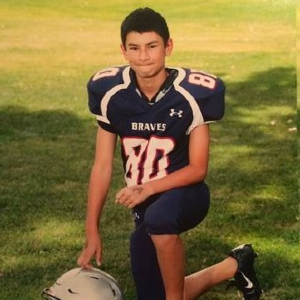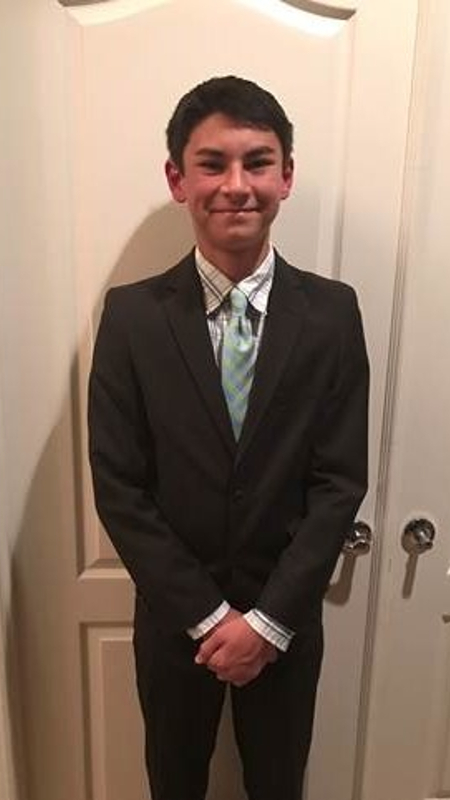Get Inspired
CLF's '17-'18 Teammate of the Year: Mack Gentry
When you think about what makes a great teammate, you probably think about commitment, fortitude, and selflessness on the field.
But the first ever Concussion Legacy Foundation Teammate of the Year, Mack Gentry, showed us that you can be a great teammate without being on the playing field.

Posted: September 5, 2017
By, Michael Burke
In 2016, the Concussion Legacy Foundation launched Team Up Speak Up, which encourages coaches to ask their athletes to Speak Up if they think a teammate may have a concussion. Understanding that athletes often cannot recognize when they have a concussion, or feel pressure to stay in the game, the goal of the program is to change the culture around concussions and help athletes play more safely.
Mack Gentry, a junior from Justin-Siena High School in Napa, California, was nominated by his athletic trainer Sarah Merkel for Speaking Up for his teammate on the football field last season.
Mack has played safety for the Justin-Siena Braves for the past two years, but he was sidelined during the 2016 season by a broken collarbone. Nonetheless, his commitment to the Braves football team remained resolute, and he was on the sideline of every game and practice, supporting his teammates.
It was during a very competitive home game that Mack put Team Up Speak Up into action. During a time-out, Mack saw that one of his teammates looked distressed. “He came out and it looked like he had been crying,” Mack said. “He said that he might have a concussion but he didn’t want anyone to know because he wanted to keep playing.” Even though his teammate wanted to stay in the game, Mack knows that concussions are too dangerous to hide. He approached the athletic trainer and told her what he saw. The athletic trainer immediately pulled the player, put him through the sideline protocol, and discovered he did, in fact, have a concussion. By looking out for his teammate, Mack may have saved him from being hurt much worse.

Mack knew that in the heat of the moment his teammate might get upset with him for telling the trainer, but he also knew that it was too risky to let him go back into the game without being evaluated for a concussion. “He was kind of mad at first because he wanted to go back in and wanted to play,” Mack said. “I think we were losing that game. But after a couple of days he realized, ‘Oh wait he did that for my safety’ and he said, ‘well, thank you.’”
“Mack is the definition of a spirited, loyal teammate,” said Merkel, who noted that younger players often “disappear” from practices after an injury, only showing up as support for home games. “But not Mack. He was at every lifting session, practice, and game, home or away, and it paid off for his teammate.”
Mack’s exemplary action revealed the critical role teammates play in diagnosing concussions. His team participates in the Team Up Speak Up program, the centerpiece of which is Team Up Speak Up Day, an annual nationwide event with the goal of getting as many athletes as possible to hear one simple speech. The message is clear:
1. We’re a team and we look out for each other.
2. A teammate with a concussion needs your help.
3. I expect you to speak up to a coach or athletic trainer if you think a teammate might have a concussion.
The speech originally comes from Harvard University Football Coach Bill Reid’s diary of the 1905 season, in which Reid records the team doctor's annual safety lecture. The doctor emphasized that teammates must look out for one another on the field, and stop the game if someone is hit in the head.
This speech, lost to history for more than 100 years, demonstrates the core message behind Team Up Speak Up Day. A person of authority must instruct their athletes on the dangers of concussions and emphasize that athletes have a responsibility to report concussion symptoms in a teammate. Otherwise, many players might still believe they are being a good teammate by covering for an athlete with a concussion. Players need to know that no matter how big the game is, the risk of playing with a concussion is always bigger.